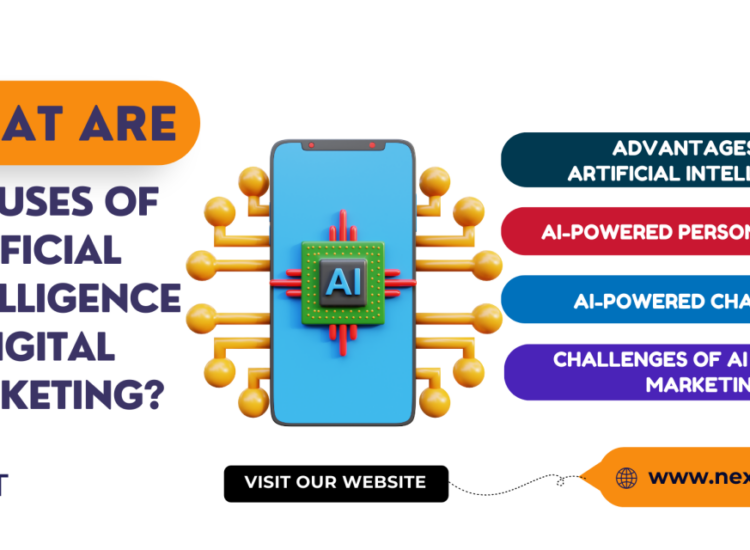The insurance industry is undergoing a dramatic shift, with online brokers and digital platforms disrupting traditional models. Insurance agents need to adapt to stay ahead, and a powerful CRM system can be the key. A CRM specifically designed for the insurance industry can help agents streamline operations, personalize client interactions, and ultimately drive revenue growth. Finding the best CRM for insurance agents is crucial for navigating this evolving landscape.
Toc
- 1. Why You Need a CRM for Your Insurance Business
- 2. Key Features to Look for in the Best CRM for Insurance Agents
- 3. Related articles 01:
- 4. Top CRM Solutions for Insurance Agents
- 5. Beyond Features: Consider the Bigger Picture
- 6. Related articles 02:
- 7. Tips for Success with Your Insurance CRM
- 8. Conclusion
Why You Need a CRM for Your Insurance Business

As the insurance industry continues to evolve, it’s becoming increasingly important for insurance agents to have a strong digital presence and efficient operations. A CRM (Customer Relationship Management) system can be a game-changer in achieving these goals. Here are some of the key benefits of using a CRM for your insurance business:
Streamlined Operations
A CRM designed specifically for the insurance industry can help streamline all aspects of your business, from lead generation to policy renewals. It allows you to create automated workflows and processes that can save you time and effort, freeing you up to focus on other important tasks. With all your information in one centralized platform, you can easily access client data, track interactions, and manage policies.
Personalized Client Interactions
In the highly competitive insurance industry, building strong relationships with clients is crucial for success. A CRM system can help you personalize client interactions by providing valuable insights into their preferences and needs. You can use this information to tailor your offerings and communication to better meet their individual needs, increasing customer satisfaction and retention.
Enhanced Sales and Revenue Growth
A robust CRM can also be a powerful sales tool for insurance agents. It allows you to track leads, follow up on quotes and proposals, and manage policy renewals. With all this information at your fingertips, you can identify opportunities for cross-selling or upselling to clients, ultimately driving revenue growth for your business.
The Competitive Landscape
The insurance industry is experiencing rapid transformation, with the emergence of online brokers and digital platforms reshaping traditional business dynamics. In 2024, the global online insurance market is projected to exceed $1 trillion, according to a recent report by industry analysts, emphasizing the critical need for agents to adopt innovative tools such as the best CRM for insurance agents. A tailored CRM can enhance operational efficiency, allowing agents to identify high-potential leads while providing a superior customer experience that differentiates them in a crowded marketplace.
Boost Client Satisfaction and Retention
Utilizing a CRM system allows insurance agents to personalize client interactions, delivering customized solutions and timely support. This level of personalization leads to higher satisfaction and increased client loyalty. For instance, imagine a CRM allowing agents to send personalized birthday greetings to clients, schedule automatic reminders for policy renewals, and track client preferences for communication channels. This level of personalization fosters a sense of value and strengthens client loyalty. With features that enable seamless management of client communication, comprehensive data storage, and automation of routine tasks like policy renewals and claims processing, a CRM equips agents to build stronger relationships with clients. This, in turn, results in higher retention rates and a more stable portfolio.
Increase Your Sales and Revenue
Implementing the best CRM for insurance agents can significantly enhance sales performance. By effectively identifying high-potential leads, automating follow-ups, and tracking sales progress, agents can navigate the sales process more efficiently. According to Salesforce research, insurance firms utilizing CRM solutions experience an average sales revenue increase of 25%. This underscores the transformative impact a CRM can have on an agency’s bottom line.
Leverage Data Insights for Targeted Sales Strategies
By analyzing client data, insurance agents can identify key demographics, purchase patterns, and risk profiles. This information allows them to tailor their sales pitches, target specific customer segments, and offer customized solutions, leading to higher conversion rates. A CRM system provides agents with data visualization tools and analytics capabilities that help them make informed decisions, resulting in more effective sales strategies.
Key Features to Look for in the Best CRM for Insurance Agents

When evaluating the best CRM for insurance brokers, several key features should be prioritized:
2. https://cacaocafenewjersey.com/mmoga-mastering-content-creation-with-ai-marketing-tools
4. https://cacaocafenewjersey.com/mmoga-ai-software-development-a-guide-for-engineering-leaders
Lead Management and Tracking
A robust lead management system is the lifeblood of any successful insurance agency. The best CRM for insurance agents should include features such as lead capture from multiple sources (website, referrals, social media), lead scoring, and nurturing capabilities. These functionalities enable agents to prioritize their efforts effectively, ensuring no potential client is overlooked. For instance, automated lead assignment based on agent expertise and location guarantees prompt and personalized responses.
Policy and Claim Management
Streamlining policy and claim management is crucial for enhancing client experience. A quality CRM simplifies processes like policy renewals, claim tracking, and client communication. With features that allow quick access to client information and electronic claims submission, agents can offer a seamless experience while minimizing administrative burdens. This efficiency not only improves client satisfaction but also reduces operational costs.
Communication and Collaboration
Effective communication is vital in the insurance sector. The best CRM for insurance brokers should facilitate interaction with clients through various channels, including email, phone, and live chat. It should also promote collaboration among team members, ensuring that everyone has access to the same information and can work together efficiently. Features such as shared inboxes, automated email sequences, and real-time updates enhance the overall client experience.
Reporting and Analytics
Data-driven decisions are paramount for insurance agencies aiming for growth. A CRM should provide comprehensive reporting and analytics tools to monitor agency performance, identify trends, and inform strategic decisions. By generating reports on lead conversion rates, customer satisfaction, and sales pipeline performance, agents can gain valuable insights into their strengths and weaknesses, allowing for strategy optimization.
Top CRM Solutions for Insurance Agents

Here’s a detailed overview of the top CRM solutions tailored for insurance agents:
FiveCRM
FiveCRM is a versatile solution that caters to the unique needs of insurance agents. With features such as sales pipeline management, smart dialing, and comprehensive contact management, FiveCRM helps streamline operations and foster strong client relationships. Its customizable dashboards and budget-friendly pricing make it an appealing choice for insurance agencies of all sizes.
Salesforce Financial Services Cloud
Salesforce Financial Services Cloud stands out as a robust CRM platform specifically designed for the insurance sector. Its unified platform, advanced claims tracking, and powerful automation capabilities make it ideal for large agencies with complex workflows. Although its pricing may be on the higher side, the extensive integrations and enterprise-level security features justify the investment for businesses requiring a scalable solution.
HubSpot CRM
HubSpot CRM is a user-friendly and cost-effective option for small to medium-sized insurance agencies. Its free plan includes a reporting dashboard, company insights, and lead management tools, making it an attractive starting point for agents new to CRM systems. HubSpot excels in its intuitive interface and strong marketing automation features, although its advanced analytics may not match those of enterprise-level solutions.
Zoho CRM
Zoho CRM offers flexibility and affordability with a wide range of features suitable for insurance agents. Its efficient deal management, workflow automation, and advanced customization options make it an excellent choice for agencies seeking to enhance operational efficiency. While Zoho’s affordability and extensive integrations are significant advantages, users may encounter a steeper learning curve compared to other CRMs.
Microsoft Dynamics 365
Microsoft Dynamics 365 is a comprehensive CRM and ERP solution offering features tailored to the insurance industry. Its business intelligence capabilities, cash flow projections, and AI-driven insights make it a powerful tool for large insurance companies with intricate needs. Although it may require a higher initial investment and a more involved implementation process, its robust reporting and integration with Microsoft products position it as a strong contender for enterprises.
Pipedrive
Pipedrive is a sales-focused CRM designed with features specifically for insurance agents, including automated renewals and efficient claims management. Its visual sales pipeline and intuitive interface make it user-friendly for agencies of all sizes. While it may lack some advanced marketing automation features found in other CRM solutions, its emphasis on streamlining the sales process makes it a solid option for insurance brokers.
Beyond Features: Consider the Bigger Picture

Selecting the best CRM for insurance agents requires a structured approach:
3. https://cacaocafenewjersey.com/mmoga-mastering-content-creation-with-ai-marketing-tools
4. https://cacaocafenewjersey.com/mmoga-ai-software-development-a-guide-for-engineering-leaders
Identify Your Needs
When choosing a CRM, it is imperative to begin by assessing your agency’s unique requirements and objectives. Determine what specific challenges you face in lead management, customer service, policy administration, and team collaboration. An understanding of these needs will guide you in selecting a CRM with features that align with your operational goals. Consider the complexity of your client base, the size and skill level of your team, and the scope of services you offer. This holistic view will ensure that the CRM solution you choose not only addresses immediate needs but is also scalable as your agency grows.
Evaluate Vendor Support and Training
An often overlooked yet vital aspect of CRM selection is the level of vendor support and training provided. Implementing a new system can present challenges, making it crucial to have access to responsive technical support and comprehensive training resources. Evaluate each vendor’s reputation for customer service, the availability of support channels, and any training programs offered. A vendor that offers robust onboarding, tutorials, and a dedicated support team can greatly enhance the adoption rate of the new CRM and help your team maximize its functionality.
Assess Integration Capabilities
Integration with existing systems is critical to a seamless workflow within an insurance agency. Ensure that the CRM you select can easily interface with other essential tools such as email, accounting software, and marketing platforms. This seamless integration will help maintain consistency in customer interactions and data accuracy across all platforms. CRM systems with open APIs or pre-built integrations can reduce the time and effort required to synchronize data, therefore boosting operational efficiency.
Budget Considerations
While features and capabilities are crucial, it is equally important to consider the CRM’s cost relative to your agency’s budget. Evaluate the total cost of ownership, which includes upfront costs, subscription fees, and any additional costs for upgrades or added features. Balance your need for comprehensive functionality with financial considerations to ensure that the solution is both effective and sustainable in the long run. Keep an eye out for hidden costs, such as extra charges for customer support or additional user licenses, which could impact your budget during implementation or scale-up.
Tips for Success with Your Insurance CRM

To maximize the value of your CRM, consider the following tips:
Ensure Accurate Data Entry
Maintaining precise and up-to-date data in your CRM is essential for effective decision-making and customer interactions. Establish clear guidelines for data entry to ensure consistency across your team. This includes setting up mandatory fields, standardizing input formats, and conducting regular audits to identify and rectify any discrepancies. Encourage your team to view accurate data entry not as a trivial task, but as a fundamental aspect of their roles that directly impacts the agency’s success. Additionally, leveraging automation tools within the CRM can help minimize manual entry errors and keep data current, further supporting efficient business operations.
Leverage CRM Reporting and Analytics
To fully capitalize on your CRM’s capabilities, it’s crucial to utilize its reporting and analytics tools. These tools allow you to gain insights into customer behaviors, sales trends, and overall business performance. Regularly analyze metrics such as lead conversion rates, customer retention figures, and sales cycle durations to make informed strategic decisions. Identifying patterns in the data can also highlight areas for improvement or opportunities for growth within your agency. Customize reports to align with your specific business goals, ensuring that they provide actionable insights. By incorporating these insights into your planning and operational processes, you can enhance the productivity and profitability of your insurance agency.
Enhance Team Collaboration
Fostering an environment of collaboration within your insurance agency can significantly amplify the effectiveness of your CRM. Utilize communication features within the CRM to ensure everyone on your team is aligned with shared customer insights and updates. Encourage cross-departmental interaction by scheduling regular meetings to discuss customer trends and address any collaborative challenges. Integrating team calendars, task assignments, and shared notes can further enhance collective productivity and efficiency. Additionally, promoting a culture where team members feel empowered to share feedback about CRM processes can lead to continuous improvement and innovation in how your agency leverages technology to serve clients better.
Regularly Update Your CRM Strategy
Your CRM strategy should be flexible and evolve alongside your agency to address changing market trends and business needs. Periodically assess the performance of your CRM system and the effectiveness of your ongoing strategies. This involves soliciting feedback from your team about their experiences with the CRM, identifying any barriers they’ve encountered, and discussing possible enhancements. Staying informed about new CRM technologies and features will also enable your agency to stay competitive and innovative. Consider conducting periodic workshops or training sessions to acquaint your team with any newly implemented features or strategies. By consistently refining your CRM approach, you’ll be able to optimize its impact on your agency’s efficiency and customer satisfaction over time.
Conclusion
Choosing the best CRM for insurance agents can significantly impact operational efficiency, client relationships, and revenue growth. By carefully considering essential features, exploring top CRM solutions, and implementing strategies for success, insurance agents can find the right fit for their agency. Embrace the potential of CRM technology to navigate the complexities of the insurance market and unlock new opportunities for growth and efficiency. Start exploring CRM options today to secure your agency’s future in this competitive landscape.















